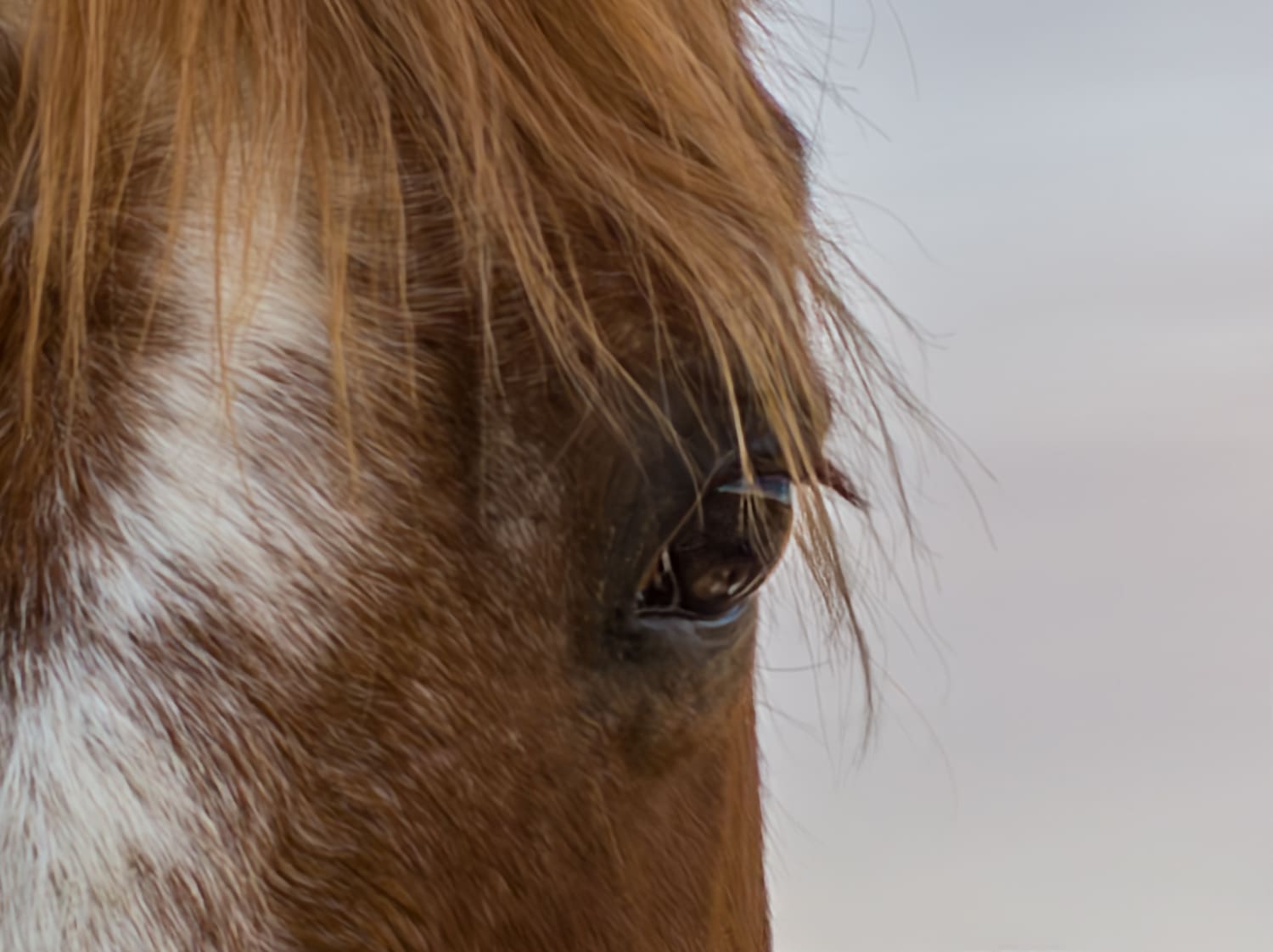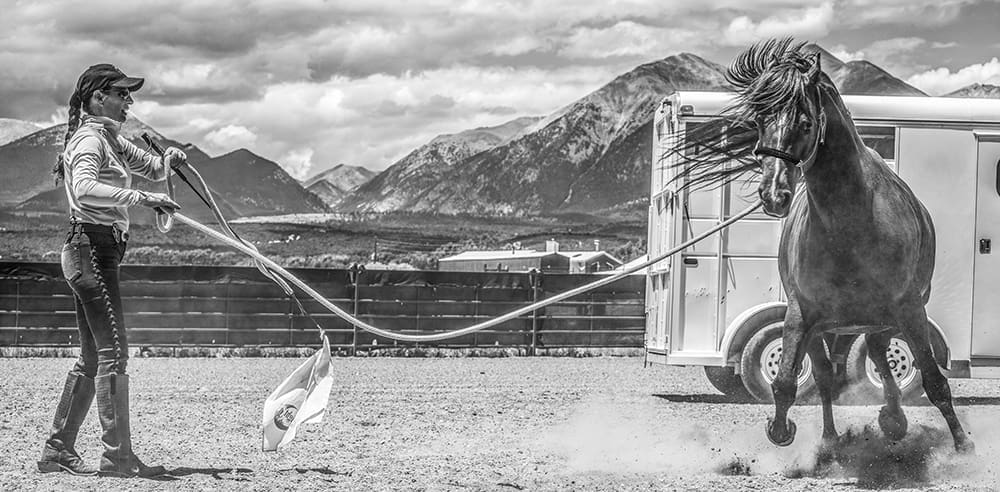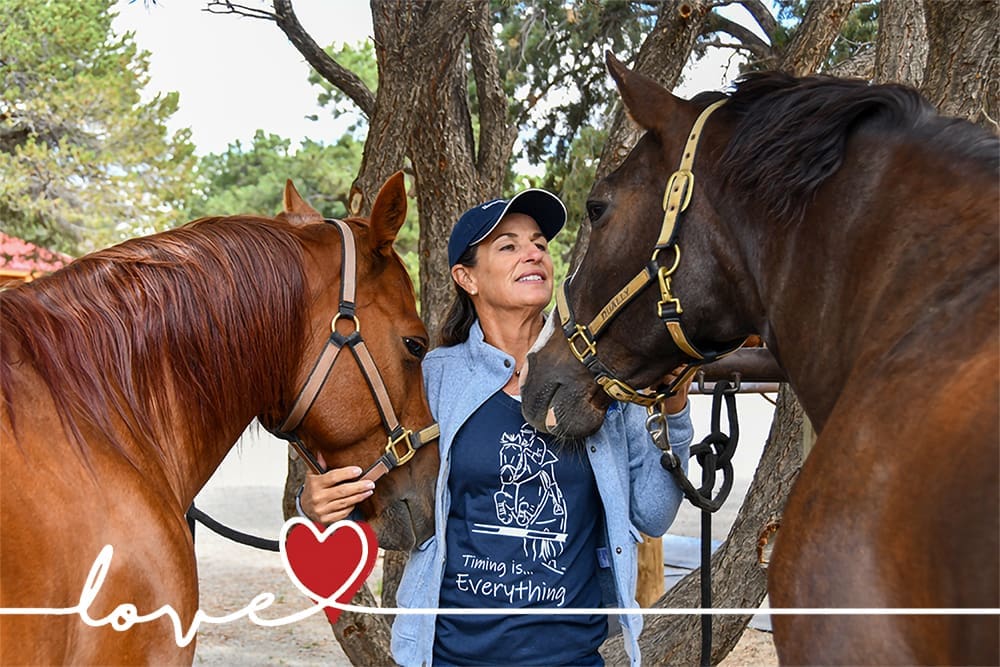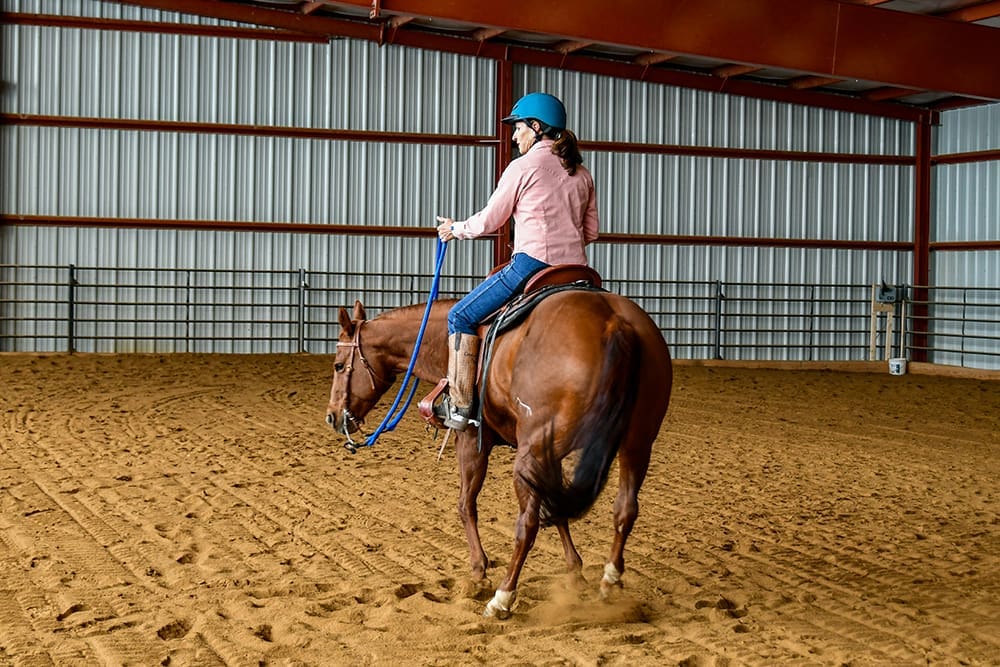Question:
Hi Julie,
First a “thank you” for all the help you have been to me in working on becoming a “natural Horseman”. My question is one regarding aggression at the feed bucket. I have just taken into foster care two mares, age 27 and 20. Both have been well trained as performance horses, but have recently been neglected and poorly fed (pastured on 140 acres and left to fend for themselves). Both are very well mannered with the older being dominant, even though she is much smaller and very skinny at this time. At feeding time the older becomes very aggressive toward the other mare and charges into the feeding area. They are fed in separate areas but she is in a frenzy until there is something in her bucket and then she settles down and is fine. After she finishes she tries to get into the other feeding area to chase away the other mare who is a slower eater. Any suggestions?
Thanks again for all your help.
Bob B
Answer:
Bob,
The situation you describe is really quite common as feeding is a very anxious time for horses in domestication and also, food is a resource that determines which horses are dominant in the herd. If your horses have been recently deprived of food, their anxiety over feed would be even greater. Let me explain. First, in the wild, horses eat all the time, grazing up to 16-20 hours a day. They eat a little and walk a little and will sometimes cover as much as 20 miles in a day to find good forage and water. In domestication and confinement we have drastically changed their eating habits to give them two lump sums of very rich food, usually only twice a day. Horses will typically gobble up their ration in an hour or two, leaving the rest of the day to stand around and wonder when they get to eat again.
Horses can get very frustrated and anxious at feed time because they have gone so long without eating and because the food comes to them without them having to work to get it. This explains why bad behaviors tend to develop around feed time. For instance, a horse feeling very frustrated and anxious will often paw (or display some other unwanted behavior). Then along comes the feeder and throws the feed in and rewards the horse. The horse will make an association (right or wrong) between his actions (pawing) and the food being delivered (reward) and thus we have trained the horse to paw.
Aggression at feed time is often related to dominant behavior. There are several articles on my website about how horses establish dominance in the herd and you may want to review those articles, but to summarize, the dominant horse in the herd controls the resources of the herd: food, water and shelter. Controlling food is one of two major factors that determine a horse’s dominance.
At feeding time, when a horse displays aggressive behavior, it is in an attempt to take away the food from a subordinant and thus reinstate his dominance. Again, people often train horses to be dominant and aggressive at feed time by feeding the horse when he is displaying aggressive behavior. In the horse’s mind, he thinks he took the food away from you and therefore you must be subordinant. Along the same lines, this can also occur when horses are hand fed treats; there are several articles on my website about the problems with dominance that this causes as well.
At our place, the feeders are under strict orders not to feed any horse that is displaying aggressive or unwanted behavior. When the feeders are approaching the pens or stalls with feed, the horses are expected to back up and wait patiently and politely for their food. If we have a horse that is displaying aggressive behavior, we will use a stick or rope to wave at the horse and back him away from the food. Once the horse has backed-off and is showing respectful behavior, we will drop the feed in and walk away. This insures that the horse does not think he is taking away the food from you and keeps him in a subordinant frame of mind.
In your situation, the mare is frantic because the natural order is upset. If she is dominant, she should be eating first. That is a fundamental rule of herd behavior. I would suggest that you either separate the horses out of sight of each other or feed the more dominant horse first. This seems like caving in to their behavior but it is not because all you are doing is respecting the horse’s natural behavior and herd instincts.
Two things to consider are first, make sure the horse’s aggressive antics are not aimed at you and she does not think she is taking away the food from you. Second, do not reward the horse with feed when she is displaying unwanted behavior. Be patient and wait until she is acting in a desirable way and then give her the feed. Good luck!
Julie Goodnight



